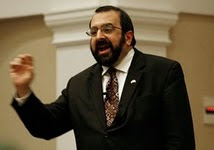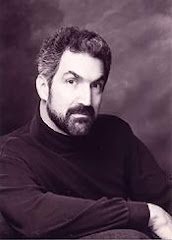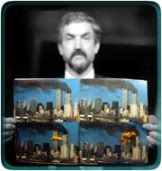There was more than one reason many attendees at The Journalist & Islam conference were unimpressed with Janet Albrechtsen’s lacklustre performance.
Albreachtsen refers to one such reason in her latest column in The Australian. She alludes to the complaints of a number of participants, identifying them by their headgear:
HER voice shaking, the young woman in the hijab sitting about five rows back from the podium was clearly angry with me. As were other women in the audience, some in hijabs, one wearing a nikab, only her eyes visible through a narrow slit. Angry with me for writing about Muslim women.
Of course, the young girl present said nothing of the sort. What she objected to was the obsession of allegedly conservative columnists like Albrechtsen to speak with authority about Muslim women. Especially when there are plenty of Muslim women quite capable of speaking for themselves.
Janet sort-of alludes to this objection later into the article:
Apparently, white Christian girls should not write or speak about such things. My error, they said, was to presume to speak on behalf of Muslim women.
My recollection of the girl asking the question was that her skin colour wasn’t exactly tanned. In deed, my guess is that if she took off her hijab, the young lass (like so many girls of Lebanese and Palestinian extraction) probably had red hair. The girls sitting next to her (including the one described by Albrechtsen as the "one wearing a nikab, only her eyes visible through a narrow slit") were virually all Anglo-Australian.
Is it the case that, in Albrechtsen’s narrow world of “white Christian girls”, a woman ceases to be white and Christian when she covers her hair and/or face? If so, perhaps that makes Mary, the mother of Christ, just another nasty foreign woman of Middle Eastern extraction.
Albrechtsen doesn't mention another issue her Muslim critics caught up with her on. During question-time, Albrechtsen repeatedly alluded to an ongoing battle within Muslims for what she described as the "soul of Islam". Yet when one of these women pressed her on how she defined the soul of Islam, Albrechtsen asked incredulously: "How should I know?"
Quite a few members of the audience laughed. It really was an embarrassing moment. Here was an alleged authority, a syndicated columnist, caught out lecturing Muslim women on their faith. And then being unable to define basic terms. Unable to set the parameters of her discussion.
From what I could gauge of Albrechtsen's speech, the battle for "the soul of Islam" is one that pits women allegedly critical of Islam against woman who still regarded some form of Islam as a substantial source of their identity.
How do i reach this conclusion? Because of the emphasis she placed in her speech on one example. This also happened to be the sole example Albrechtsen mentions in her column – the former Dutch politician and ex-Muslim Ayaan Hirsi Ali.
No doubt Albrechtsen will have read my review of Hirli Ali’s book which appeared in The Oz.
She may have also read recent reports about the authenticity of Hirsi Ali’s work which have appeared even on right-wing websites:
So here we have serious conservative sources openly questioning the authenticity of Albrechtsen’s major source. One would have expected Albrechtsen would be more careful with her sources, especially after her recent experiences.
The balance of Albrechtsen’s article concerns basic problems affecting women not just on Muslim countries but throughout the third world, including Catholic Latin America and Philippines and Buddhist Indo-China. Naturally, Albrechtsen won’t blame Catholicism or Buddhism for these problems. Nor will she quote ex-Buddhists or ex-Catholics as her sources.
Perhaps Albrechtsen should leave the resolution of these problems to the genuine efforts of women’s groups such as Rifka An-Nisa of Indonesia and Sisters In Islam of Malaysia. The millions of Muslim women whose Albrechtsen claims to be concerned about would love the help of women of any background (including “white Christian girls”).
But they certainly don’t need the patronising and demeaning nonsensical generalisations of pseudo-conservative columnists who would just as quickly support the carpet-bombing of these women if it were the wish of a neo-Conservative US President. Don’t expect Albrechtsen to be hurriedly writing about the plight of Iraqi Muslim women whose villages were destroyed by Coalition forces.
© Irfan Yusuf 2006













